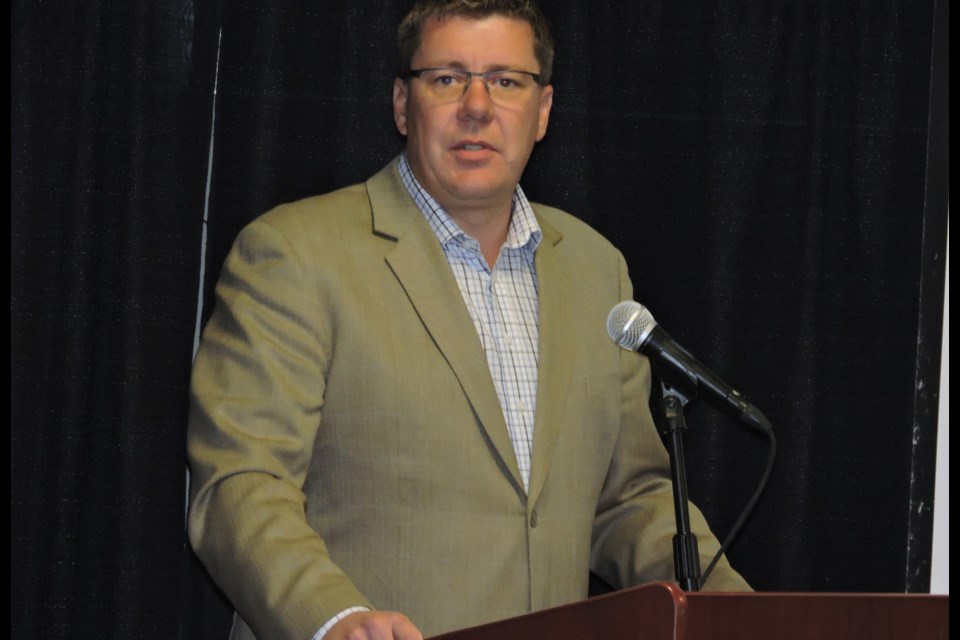Monday, January 7th marked a historic day for the province after Premier Scott Moe apologized to survivors of the Sixties Scoop in a highly televised/live-streamed event.
However, while some saw the apology as an important step, others lamented that the apology means nothing without immediate changes in policies and steps to foster indigenous understanding.
The Sixties Scoop, which the government acknowledged failed Indigenous families, separated Indigenous children from their families and placed them in homes that robbed them of their culture.
Premier Moe apologized on behalf of the province.
“During the Sixties Scoop, not nearly enough consideration was given to the fact that Indigenous children come from communities with their own rich traditions, culture and history,” Premier Moe said. “Some Indigenous children were separated from their families and their communities, and as a result those children were cut off from their culture, and they were cut off from their traditions.”
He says after meeting with survivors and hearing their stories, the province is now aware of the vast impact the Sixties Scoop has had on Indigenous families and communities.
“The consequences are still being felt by individuals and families to this day. The children impacted by the Sixties Scoop are adults now, and we have heard their stories during the last few months.”
Premier Moe emphasized the province’s ‘failure’ and said the ordeal has caused much pain.
“We failed the survivors we heard from in the sharing circles, and so many others. We failed their families. We failed their communities…we failed,” Premier Moe acknowledged. “On behalf of the Government of Saskatchewan; on behalf of the people of Saskatchewan, I stand before you today to apologize, to say sorry. We are sorry for the pain and sadness you experienced. We are sorry for the loss of culture and language. To all those who lost contact with their family, we are so sorry. There is nothing we can offer that will fully restore what you have lost.”
Premier Moe then assured that government policies have changed and continues to change to keep families together going forward.
“What we can offer is the solemn assurance that government policies have changed, and they continue to change. While there are still too many First Nations and Métis children in care, today we work with 17 First Nations Child and Family services agencies to deliver culturally appropriate child welfare services to vulnerable children in more than 60 First Nations communities. Whenever possible, we keep families together. We have strengthened supports intended to maintain a connection to family and culture.”
In responding to the Premier’s apology, Moose Jaw’s Lori Deets, a survivor of the Sixties Scoop, says while she is not discrediting the apology, it means nothing without appropriate actions taken going forward.
“I did attend the apology at the Legislature. I was on the fence about it, but I felt it was important that I went. Nothing happened out of the ordinary that I didn’t expect. It was a lot of nice words. An apology is nothing but an apology. It’s just words,” she said. “The apology is a first step, but I think where we actually need to go is amendments; now what do we do?”
“We really need to see more changes in the area of amendments. I would have felt a lot better if he [outlined] what will be done and how it’s going to be done, without the apology.”
She stressed that real change will start with a “complete overhaul of the foster care system” where a lot of Indigenous children are still part of.
“The changes he mentioned in the speech have been in place but, yet thousands of children remain in foster care. It hasn’t changed. They say they are doing it, but are they really? I don’t want to discredit that an apology was given. However, I’d really like to see a complete overhaul of the foster care system; not just a lot of Indigenous families keeping the children but Indigenous workers, and indigenous people in charge of that process and what it involves. Also, going back to the Indigenous way of doing things. Indigenous people had a functioning society for many years and they have ripped that apart and it really needs to come back to that. It’s not just about children in families but the social workers and ministers in charge having Indigenous understandings.”
Meanwhile, Cultural Educator, Barb Frazer shared similar sentiments.
“I am not a survivor of the Sixties Scoop, but I had family members who were impacted and devastated by it. They were spirited away from family and that had an impact. The apology is just another apology. At the end of the day, it speaks to the immense healing and connecting work that needs to take place as well as the programming that needs to be delivered to meet that need. Immediate work and dialogue need to follow yet another apology. The public acknowledgment [through the apology] was needed to move forward."




